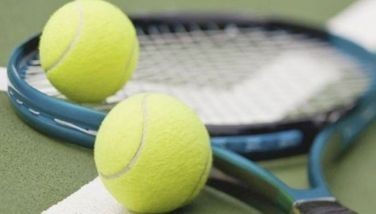Olympic success, sports tradition
Last week, we discussed some of the factors for Olympic success that were featured in the column (“World View”) of Director of Research at the Centre for European Studies at the Institute of Political Studies in Paris, Zaki Laidi, entitled, “Olympolitik”. The column appeared in the August 19, 2012 issue of one of the country’s broadsheets.
Laidi names four factors behind Olympic power: population size, sports traditions, sports policy and level of development.
We stated that we can easily agree with Laidi when he links population size with Olympic success but added that as in any general rule, there are exceptions. China is the obvious example of population size and fine performance in the Olympics: a country with a population of 1.2 billion has a big pool from which to choose athletes for elite sports. Children and youth from this huge pool are scouted by experts in sports science and talent identification as prime candidates for further regimented training (almost like child labor in many cases) where children as young as four years are separated from their parents for long periods.
For China and other countries under authoritarian rule, sports is a valuable propaganda tool especially when gold medals support its obsession of proving that its political system is the formula for success in all fields.
We pointed out that Australia is one exception of a country with a highly successful sports program in spite of a relatively miniscule population pool in 2012 of 21.2 million, or two percent of China’s 1.2 billion inhabitants. We pointed out that in the 2012 Olympics in London, the Australians won seven gold medals out of a total of 35 medals. India, with about the same population as China, is another exception, not having won a gold medal in London.
There must therefore be other factors that account for Olympic success. Laidi points out that sports traditions is one of them. He states that traditions are on the other hand sometimes dictated by a country’s physical and natural make up as in the case of Ethiopia (and Kenya) which has created a niche in the middle distance and long distance runs and the marathon. Its mountainous regions and lack of transport especially in the rural areas have been transformed into opportunities rather than drawbacks.
Ethiopia has a population of 93 million, almost the same as that of the Philippines. Its mainly agricultural economy (41 percent of Gross Domestic Product or GPD and 85 percent of its population are involved in agriculture) is definitely much smaller than the Philippines: Ethiopia’s GDP per capita is about US$1,100 (2011 estimate) and its GDP growth rate in 2011 was recorded at 3.7 percent while the Philippines, under the Benigno Aquino III administration, posted a growth rate in the first quarter of 2012 of 6.4 percent while its GDP per capita was estimated at US$4,100 in 2011 or four times that of Ethiopia.
And yet, Ethiopia, because of a sensible and realistic sports tradition (which is most certainly reflected in its sports policy) has excelled in a sport, track and field, which takes advantage of its natural physical features. Ethiopia has chosen to specialize in a “measured and timed sport” which does not call for the intervention of incompetent and/or dishonest human judges in determining the winner of the sport.
The Philippines developed, in contrast, an American/western-based sports tradition by encouraging participation in basketball, which is immensely popular in America and tailor-fit for the stratospheric Americans but do not conform to our physical attributes. One can say therefore that sports tradition has almost nothing to do with our physical attributes as a country and as a people.
Over the years, the country has developed outstanding talents in boxing, a phenomenon which has almost nothing to do with our country’s physical features. If one wants to stretch the connection however between our boxing talent and our country’s physical make-up, one has to say that life as a farmer and a fisherman in our agricultural and archipelagic country is so difficult that our youth see boxing as their way out of poverty. Poverty is very often wrongly correlated with being a fisherman, farmer and farm worker.
The third factor that Laidi identifies as a factor for Olympic success is national sports policy, which, is practically non-existent in the Philippines for lack of a sports master plan. And when we talk of sports policy let it not be twisted to mean “lack of funds for sports”. As the Australian experience in the London Olympics will show, tons of money with a defective sports policy can wipe out previous gains.
Next week, we will try to show why, ironically, in Australia’s case, “lack of funds” is not the culprit but rather a fatal error in decentralization and strategic thinking which do not really require funding.
- Latest
- Trending






























